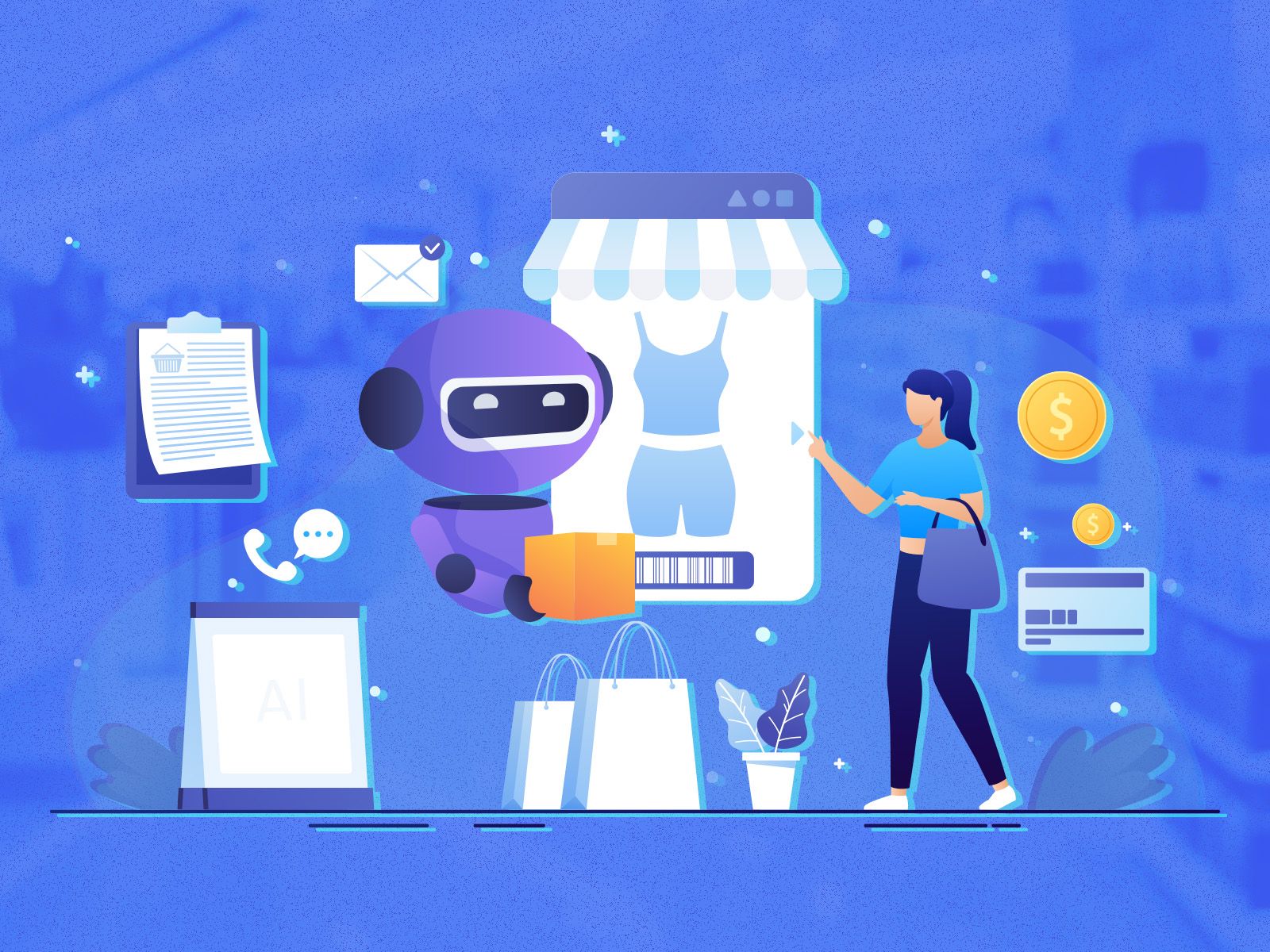AI-Powered Recommendations

Illustration: © AI For All
Picture this: you’re shopping on one of your favorite websites and all of a sudden, you receive a popup prompting you to read the company’s privacy policy. Do you typically take the time to read it? Don’t be embarrassed to say no – most consumers (64 percent) don’t read them either, according to a recent survey we conducted.
This survey, which compiled responses from 1,000 U.S.-based adult consumers, analyzed their feelings about cookies, privacy policies, and personalized shopping experiences – and the results are telling.
One of the most interesting takeaways? While typically consumers find personalized experiences helpful, sometimes, they find these experiences and recommendations to be creepy.
What’s a Cookie?
Only 22 percent of consumers always click “accept cookies” while understanding what it means. However, some consumers (21 percent) always click accept cookies without understanding what it means.
Shoppers are likely accepting cookies just to get rid of the popup and continue with their shopping – proving that there’s an educational gap in understanding what cookies are and why retailers are asking to collect them.
While most consumers either always, or sometimes, click the accept button, you may be wondering – how do they feel about these cookies? The survey showed that 53 percent of consumers feel annoyed when they’re asked about cookie consent, 30 percent noted they’re tired of popups and 23 percent don’t want websites to use their data at all.
On the other end, 37 percent say that – as long as it’s clear why – they don't mind websites asking for cookie consent. This number is highest for Gen Z at 49 percent, however, the survey showed that there’s still only 10 percent who feel positive about it because they like the transparency – this number comes in at only 4 percent when looking at Baby Boomers.
Creepy vs. Helpful
58 percent of respondents have found a retailer’s personalized recommendations to be creepy. Even though some find these personalized, AI-powered recommendations to be creepy, they’re still taking their chance to indulge in the data-driven world that is online shopping.
When looking at the past year, 60 percent of consumers have bought an item that they’ve searched for on a retailer’s website, and 37 percent purchased something that was recommended to them based on previous browsing and purchasing activity.
This has a positive outlook for brands – showing that consumers do want these personalized experiences. By leveraging an AI-powered search solution, retailers can present each shopper with a more efficient and engaging experience tailored directly to them.
Transparency Outshines Creepy
58 percent of consumers are willing to share their data and browsing activity with a retailer for the right reasons. The reason: knowing that the information they provide will be used to create an enhanced and more personalized shopping experience.
Even though 19 percent of respondents say they would never share their data with a website, there’s still an opportunity to help consumers feel more comfortable. To do this, consumers want:
- Complete transparency on how their data will be used (54 percent)
- Information on the website’s data security and privacy practices (35 percent)
- Access to a loyalty program and its perks (29 percent)
- Free samples or trials (27 percent)
- One-off discounts or offers (24 percent)
- More personalized/relevant recommendations (20 percent)
In addition to the above, 60 percent of shoppers would like the opportunity to use a “thumbs up/thumbs down” feature on a retailer’s website, helping with future recommendations. However, this seems to be a missed opportunity at the moment, with only 6 percent saying that their favorite retailers use this feature already.
The major difference across generations: younger generations are twice as likely as Baby Boomers to embrace social commerce.
There’s a different story to tell when analyzing the results across the different generations. Of note, Baby Boomers are the most reluctant to entrust retailers with their information. The most common information they’d be willing to share with retailers was that they’re not willing to share any (39 percent), compared to 21 percent of Gen X, 14 percent of Millennials, and 12 percent of Gen Z.
When looking at how they shop, Baby Boomers don’t have much excitement for social commerce, unlike the younger generations. When asked if they’ve bought something based on a social media ad, 37 percent of Gen Z, 39 percent of Millennials, and 30 percent of Gen X say they have – but only 16 percent of Baby Boomers.
We see a greater generational difference when it comes to purchasing items based on social media trends. Only 1 v of Baby Boomers said that, in the last year, they’ve purchased an item because of a social media trend, but other generations answered quite differently:
- Gen X: 11 percent
- Millennials: 19 percent
- Gen Z: 21 percent
Personalized Experiences for Retail: Looking Ahead
It’s clear that there’s hesitation when it comes to sharing data to enhance personalized shopping experiences – but 59 percent of respondents still think that retailers could be doing more to create personalized experiences for shoppers. Due to this, consumers would be willing to share the following information with retail websites:
- Their shopping preferences based on what they pick and choose on that website (49 percent)
- Purchase history on that website (33 percent)
- Browsing history on that website (31 percent)
- Direct feedback and reviews (22 percent)
While providing more personalized experiences will benefit the shopper, retailers must understand the business benefits this brings, as well. AI-driven recommendations can also help to boost conversion rates and customer loyalty.
After collecting data on the users’ actions during their shopping journey, AI can aggregate the data, and then analyze the behavior and preferences of the shopper. AI makes the shopper feel both understood and valued – and in today’s digital age, they expect to have a unique experience when shopping online.
AI Search
Retail
Ecommerce
Author
Algolia is the world’s only end-to-end AI search and discovery platform. Our engineers invented a breakthrough use of AI to create exponentially better search & discovery. Algolia’s proprietary NeuralSearch tech combines vector-based natural language processing & keyword matching in a single API. Algolia powers 1.75 trillion search requests a year or more than 30 billion a week.
Author
Algolia is the world’s only end-to-end AI search and discovery platform. Our engineers invented a breakthrough use of AI to create exponentially better search & discovery. Algolia’s proprietary NeuralSearch tech combines vector-based natural language processing & keyword matching in a single API. Algolia powers 1.75 trillion search requests a year or more than 30 billion a week.









